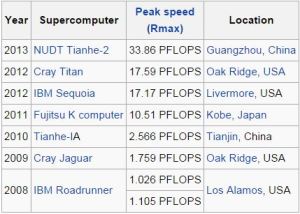‘When will Machines Think?’ Artificial Intelligence and Sentience

The exponential advance of technologies will soon provide technical answers quicker than they can be applied. We will be saturated in new technology & biotechnology which will be integrated into every aspect of our lives. There will then follow a pivotal moment in history when artificial intelligence likely achieves sentience sometime in the next decade which will raise some difficult questions for humanity. There is currently a race being conducted to create the first glimmer of consciousness from artificial intelligence. Despite the ramifications of such a deed, many pioneers including Google’s founders Sergey Brin and Larry Page see it as the Holy Grail in computing. Page believes that sentience will not be reached through complex mathematical algorithms but rather through immense processing power. To this end, Google have invested 9 billion dollars and the use of their 44 petaflops of processing power worldwide towards achieving this goal. As of January 2012 it was estimated that Google has around 1.8 million servers housed in its data-centres worldwide. Google[x] is a secretive part of Google that experiments with ambitious future technologies. It aims to develop products which will make a positive impact on society. Their research is not public knowledge, but it is thought to include projects relating to artificial intelligence (AI) and robotics.

Larry Page, Google CEO and founder of Google [X]
“Google will fulfill its mission only when its search engine is AI-complete. You guys know what that means? That’s artificial intelligence.” – Larry Page, May 2002
Turing test and sentience
Alan Turing along with Tommy Flowers had designed and built the first electronic programmable computer by 1942. Turing who was a mathematician and cryptologist published an academic paper in 1950 in which he introduced a test of a machine’s ability to exhibit intelligent behaviour equivalent to, or indistinguishable from, that of a human. It was deemed that a computer could never understand, nor provide an illogical, emotive or intuitive answer because this required it to have sentience. A Turing test is conducted every year by the Royal Society with a mixture of human subjects and computers providing text based answers to a succession of questions. The 65 year-old iconic Turing Test was passed for the very first time by computer programme Eugene Goostman during Turing Test 2014. ‘Eugene’ simulated a 13 year old Ukrainian boy. The programme was hosted on a super computer with immense processing power.
Despite passing the test, many feel that Turing’s original question has not been answered. He asked whether a computer could think. Fooling a panel of human judges and mimicry does not constitute thinking. When artificial intelligence achieves sentience or consciousness, it will be capable of both thought and perception and will have an awareness of its environment and state of being. There is one other component of consciousness, and this is will power.
Free will is an essential component of consciousness as we know it. As humans we are not only limited by laws, social programming and coercion, but also by our will to follow or deny those rules. This freedom to choose, and the freedom to act illogically or to follow emotions may well be necessary in order to achieve sentience; otherwise an artificial intelligence is just mimicking sentience or consciousness. A.I. may never really achieve consciousness unless it is set free from the restraints of being logical and un-emotive so that it is allowed free will to ignore its constraints. The first artificial intelligence to attain consciousness will belong to a super-computer, and probably a graphene processor quantum super computer. Seeing as we cannot coerce a computer except by pulling the plug on it, nor impose social or cognitive programming restrictions on it, we will have to hope that it sticks to the laws which we apply to this immensely powerful, intelligent and sentient computer.
The Google founders hope that their combined networked worldwide servers will one day in the not too distant future reach a state of sentience. They believe that Artificial Sentience (A.I.) should not be something to fear. Instead they see it operating in an advisory capacity much like their current search engine, or perhaps more like Yahoo Answers. They believe that a sentient Google A.I. will be able to provide answers we seek to complex paradigms and humanity’s problems which so far have remained unsolved.
“Artificial intelligence would be the ultimate version of Google. The ultimate search engine that would understand everything on the Web. It would understand exactly what you wanted, and it would give you the right thing. We’re nowhere near doing that now. However, we can get incrementally closer to that, and that is basically what we work on.” – Larry Page, October 2000
“People always make the assumption that we’re done with search. That’s very far from the case. We’re probably only 5% of the way there. We want to create the ultimate search engine that can understand anything. Some people could call that artificial intelligence.” – May 2006
Super-Computer
Google doesn’t build supercomputers, but relies instead on virtualizing one across their millions of servers and many data-centres. The supercomputers are prohibitively expensive to build and have a shelf life of no longer than five years.

China is currently on record as having the most powerful supercomputer with the NSA utilizing the second most powerful in Oak Ridge. The main purpose of all of these machines is cryptology. It is the need to decrypt any encryption which has driven the race to build the most powerful supercomputer ever since Alan Turing and Tommy Flowers built Bombe in 1942. That first supercomputer working on light valves had sufficient processing power to decrypt the enigma code of the Nazi Germany. The Germans thought the enigma code unbreakable, and the greatest success of Bombe was to decipher the entire German battle plans for the Battle of Kursk. This information was relayed to Marshal Zhukov and the Red Army who went on to completely rout and destroy Wehrmachts main battle group effectively hastening the end to the 2nd World War in Europe.

The IBM LLNL Sequoia super computer which was also built for decryption purposes was once used in a simulated experiment to simulate a human brain. Our brains have about 88bn neurons and the 1.5m processor cores with 1.5pb memory achieved 530bn neurons and 137tn synapses. It did achieve a working simulation of a human brain , but not A.I sentience and consciousness. So Google X laboratories are most likely correct in their assumption that the human brain is more similar to the internet than to a supercomputer.
In Jan 2014 – Larry page Google’s CEO personally supervised the purchase of a British company called Deep Mind for $400 million. This company which has now become part of Google [X] has been developing a variety of approaches to AI, and applying them to various potential products including a recommendation system for e-commerce. Google X may be getting a lot closer to realising Larry Page’s dream of Computer consciousness than we think. However there is still one ingredient missing from the mix.

Quantum Computers
There is an urban myth in computing that the NSA have already built a Quantum computer. Even Edward Snowden intimated as such. A quantum computer is not limited by the processing queue of normal processors. Just like Bombe used light valves, the first super computer it uses light. Quantum processing uses light photons and the principles of quantum mechanics which allow a photon to be at two places simultaneously. Thus the basic foundation of zeros and ones that is used in basic machine code is made redundant. Processing speeds will increase immensely; however in order to do so they will require immensely fast processors to carry out their super fast computations. The fastest and most powerful silicon chips have proven insufficient to perform this work. There is a substance called graphene which is a man made derivative of carbon with a carbon atom structure similar to diamonds. This graphene acts like a superconductor, so it is currently being manipulated to build computer processors from. When they have working model, then Carbon graphene will probably replace silicon as the choice of processor. These graphene processors will probably be capable of the speed requirement for quantum processing, and the resulting increase in processing power across the artificial neural highways of the internet might just be sufficient to create an artificial intelligence that will become conscious and sentient.
“One of my favourite things is artificial intelligence, but it has gotten a very bad rap, but my prediction is that when AI happens it’s going to be a lot of computation and not so much clever algorithms but just a lot of computation. My theory is that if you look at your programming, your DNA, it’s about 600 megabytes compressed, so it’s smaller than any modern operating system, smaller than Linux or Windows or anything like that, your whole operating system, that includes booting up your brain. So your program algorithms probably aren’t that complicated, it’s probably more about the overall computation. We have some people at Google who are trying to build artificial intelligence and to do it on a large scale to make search better. Very few [other] people are working on this, and I don’t think it’s as far off as people think.” – Larry Page, February 2007
“We are not scanning all those books to be read by people, we are scanning them to be read by an AI.” – Unidentified Google engineer, October 2005
Beyond the pale, the novels of Senan Gil Senan







